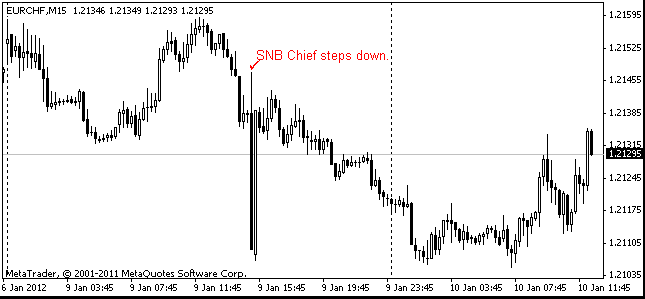EUR/usd
The safe assets keep depreciating. In addition to weakness of the Japanese yen, the US dollar has been falling against the euro for five days in a row. This morning Ben Bernanke has added fuel to the fire, saying that the economic conditions are still far from what he would like them to be. Such words have been immediately taken by the markets as a signal that the fomc will not hurry to terminate the asset purchasing programme. The thing is that unlike the BOE, where the chairman may for several meetings in a row be in the minority, in the Fed the committee rarely goes against the chairman. eurusd's reaction to Bernanke's comments was a jump to 1.3070, but since then the pair has been consolidating at 1.3050. Generally speaking, last week's performance may become a good reason for the US dollar to make a U-turn. Earlier it was supported by the favourable statistics, which came out better than expected, but now it seems that the US reports will be falling short of expectations. Also the attitude to the single currency in Forex appears to be changing as well. Most concerns about the integrity are now on the sidelines. The markets keep operating, though we see demand for the safe German and French bonds. As was shown by yesterday's auction, the 6-month German bonds are again negative. It hasn't been so since January. Yet during yesterday's French auction investors preferred German bonds (the yield of the 6-month French ones has slightly grown), one-year bonds have also fallen to the levels of last January.

GBP/USD
The British pound was depreciating yesterday, and it was especially visible against the single currency. Yet the decline was quite cautious – the pair still remained above 1.5260. Formally the pair fell below this level, but was purchased on the dips, which means that bulls are quite strong. Today all attention will be paid to the Industrial Production and Visible Trade Balance statistics. Both the indicators have been weak points of the country's economy over the recent years. The government and the CB try their hardest to carry out rebalancing by means of the production increase and exports. For the most part problems are caused by recession in the eurozone, where Britain sends about two thirds of all goods.

USD/JPY
The Japanese yen keeps falling. Last night usdjpy already hit 99.60, so the level of ¥100 per dollar is not far off. To better understand the scale of this decline, note that a year ago the yen was trading at 81.40 and the low hit last September makes ¥77 per dollar. This, the yearly increase makes almost 22% and from the bottom the impressive 26%.

EUR/CHF
Maybe, Switzerland cannot boast of the strong franc, but it can well be proud of the performance of its labour market. Today's statistics show that in March the number of the jobless shrank by 7K and the unemployment level fell down to 3.2% (3.1% seasonally-adjusted). In the eurozone this indicator makes the extreme 12%. Anyway, the favourable employment statistics is not enough to make the SNB abandon its peg policy , so traders without hesitation purchase the euro for francs on hitting the 200-day MA (yesterday at 1.2130).
